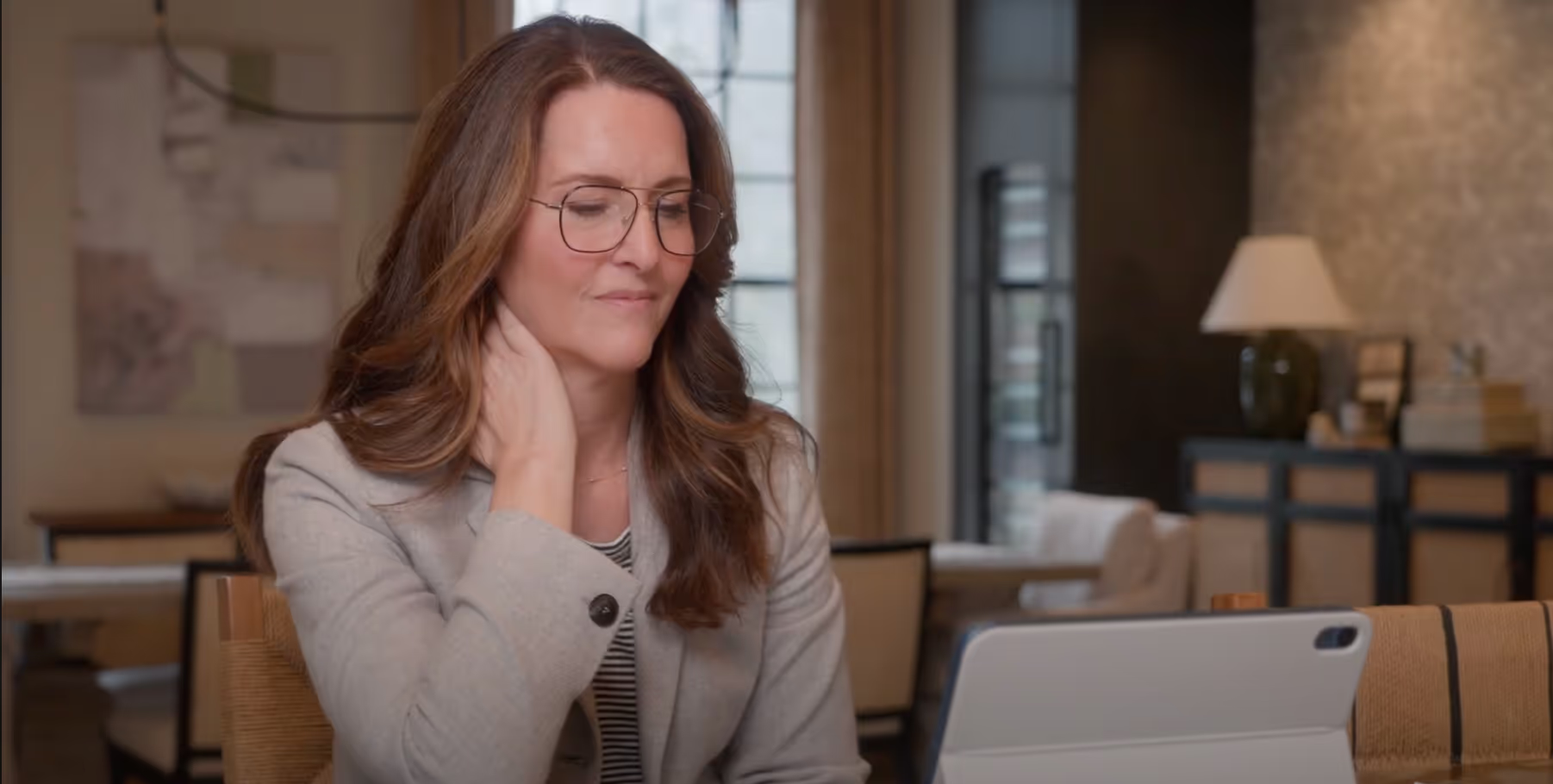As a family caregiver, I know firsthand how quickly life can change. I’ve cared for both of my parents while raising my own children, which places me in what’s often called the “Sandwich Generation.” Balancing the needs of aging parents with the responsibilities of motherhood has given me a deep understanding of both the challenges and the unexpected moments of grace that come with caregiving.
In my role as a Care Navigator at Synapticure, I now have the privilege of supporting other families as they face similar journeys. This work is deeply personal to me because I’ve been there—navigating the questions, the exhaustion, and the search for hope.
That’s why Emma Heming Willis’s story resonates so strongly. She began to notice changes in her husband’s behavior. For months, she questioned everything, trying to make sense of what was happening. She never imagined those troubling signs would turn out to be symptoms of a cognitive disorder, or that her life would be forever changed when they walked out of the doctor’s office with a diagnosis of Frontotemporal Dementia.
This story may sound familiar. Life can change in an instant, and suddenly the role you once knew shifts completely. A partner becomes a patient, and you find yourself stepping into the world of caregiving. It’s a path so many walk, yet it can feel incredibly lonely when you’re the one living it.
Emma’s new book, The Unexpected Journey, was created for moments like these. It’s not just a book, but a supportive guide for caregivers who are learning how to care for themselves while navigating the challenges of a loved one’s diagnosis. Emma puts it best when she writes, “The message throughout this book is you can’t do this journey alone; that is also the case with making time for yourself. As caregivers, many of us want to handle it all and not feel like a burden to anyone.”
A diagnosis may be given to one person in the exam room, but it changes the lives of everyone who loves them. Families often leave the doctor’s office with little more than a pamphlet and a follow-up appointment, and they’re left to figure out what comes next on their own.
The Impact of Caregiving
Becoming a caregiver touches nearly every corner of life. Routines shift, career goals are put on hold, friendships can fade, and your own health may take a back seat. Many caregivers quietly carry an invisible weight, balancing medications and appointments while also trying to hold space for grief and change. It’s no surprise that the stress and exhaustion can take a heavy toll.
Research helps put this into perspective:
- Caregivers are far more likely to experience depression, anxiety, and ongoing mental distress than those who aren’t in caregiving roles.
- Self-care often slips away. Many caregivers skip their own doctor’s visits, find it hard to exercise, or struggle with healthy routines. Over time, this can lead to high blood pressure, obesity, or other chronic health issues.
- The body itself shows signs of strain. Studies show caregivers often have higher stress hormones, weaker immune systems, and even slower healing.
- For older spousal caregivers under chronic stress, the health toll can be serious, with studies showing a 63% higher risk of mortality compared to peers who are not caregivers.
- Work and financial life are also affected. Many caregivers report cutting back hours, missing out on promotions, or even leaving jobs to keep up with responsibilities at home.
And yet, even in the hardest moments, caregiving has a way of revealing extraordinary strength, resilience, and love. It’s not a role anyone asks for, but it’s one that reshapes families and deepens bonds in profound ways.
Why The Unexpected Journey Matters
Emma’s book offers comfort, honesty, and hope. It reminds caregivers that:
- You aren’t alone. Reading someone else’s story can help you feel seen and validated in your own.
- There’s language for the hardest moments. Emma’s words put into perspective what so many caregivers feel but don’t always know how to say.
- Self-care matters. The book encourages caregivers to give themselves the same care and compassion they so freely give to others.
- There can be meaning even in hardship. Through connection, presence, and love, caregiving can bring unexpected depth and perspective.
Finding Strength, Hope, and Yourself
Caregiving often begins with shock, fear, and the feeling of being unprepared. But as the journey unfolds, many discover inner strength they didn’t know was there. Hope shows up in unexpected places, and parts of yourself that may have been hidden come to light.
This path is not easy and it can be exhausting, isolating, and heartbreaking at times. But it also carries the possibility of connection, growth, and resilience. By reaching out for support, making room for your own needs, and remembering that you don’t have to walk this road alone, you can still find light in even the darkest seasons.
As Emma Heming Willis reminds us, caregiving is not meant to be carried in silence. In community, in self-care, and in choosing hope each day, caregivers can reclaim not just their strength, but themselves.
So if you find yourself on this unexpected path, hold onto this truth: you are not alone. While life may be forever changed, there is still space for joy, healing, and rediscovering who you are. This is where you can find strength, hope, and yourself on the caregiving path.
To learn more about Emma’s caregiving journey or to purchase a copy of The Unexpected Journey, visit: emmahemingwillis.com
You can also follow Emma on Instagram at @emmahemingwillis for updates and inspiration.










.png)



